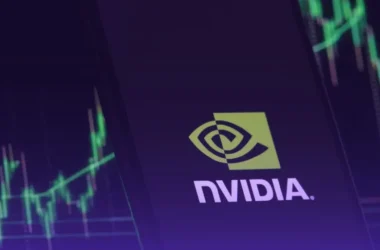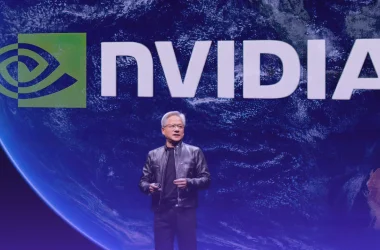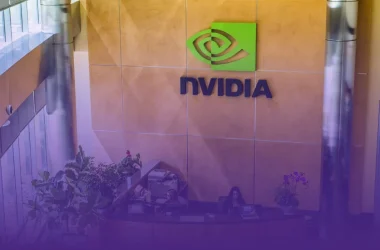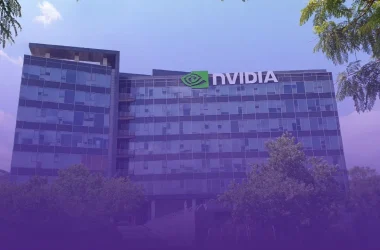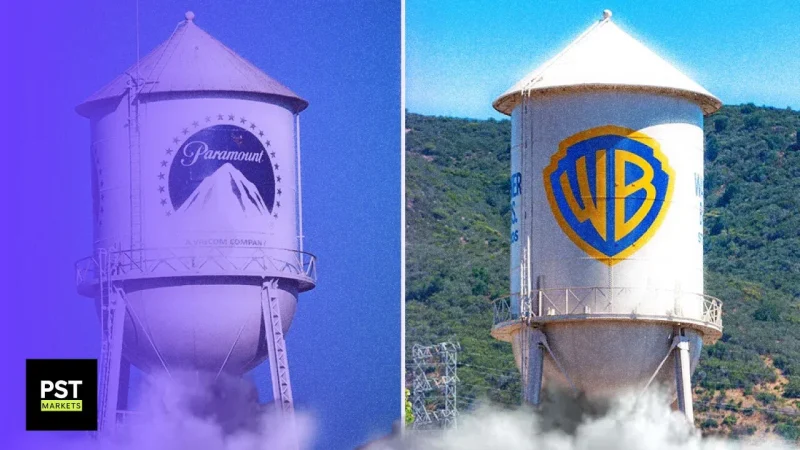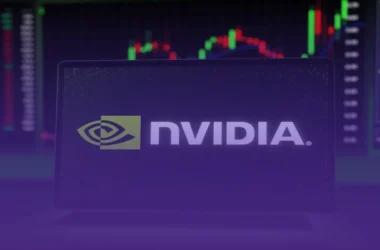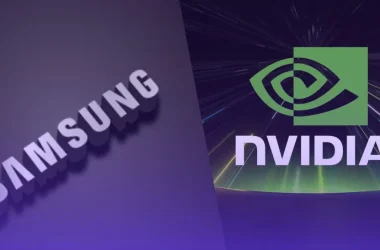Drama behind the scenes, as two of the most well known media companies in the US and the world prepare to potentially merge. In December, reports surfaced that the CEOs of Warner Bros Discovery Inc. (NASDAQ: WBD) and Paramount Global (NADAQ: PARA) met to discuss a possible merger. As a result WBD stock fell roughly 11% on the news.
However, Warner Bros CEO, David Zaslav, also reportedly met with the owner of National Amusements, Paramount’s parent company, suggesting that the deal could be with National Amusements instead. A merger of this size – if it comes true – could have a major impact on the outlook for WBD stock.
WBD Stock & Paramount’s Merger
It’s hardly a secret that WBD has been looking to acquire rivals in the space. But if the merger does go through it still won’t be enough to compete with streaming giants like Netflix. Some analysts have even theorized that the deal would only leave the resulting company worse off – deeper in debt with aging assets. Whereas others like CNBC founder Tom Rogers claims that while the merger may be desperate, it also could be necessary for he two legacy media companies’ survival.
WBD’s interest in Paramount could be thanks to its NFL sports rights. NFL viewership has reached an 8 year high with an average of 17.2 million viewers per game. This year alone has brought a 7% YoY increase from the last year. While WBD lost its rights to the sport programs, competitors like NBC and Amazon’s Prime Video are relishing in the viewership. Prime Video saw a 23% increase in viewers in its second season as rights holder for “Thursday Night Football” and it seems likely that WBD would want to get a foothold in this space.
If the merger happens, then CBS Sports, which is owned by Paramount, could be combined with WBD Sports which includes TBS, TNT, and TruTV. Not only does CBS have NFL rights for the next decade but it will also broadcast the Super Bowl in 2028 and 2032.
There is also a rationale for combining their 2 streaming platforms, Max and Paramount+, to reduce costs and increase synergies. Combining their content and reducing the costs associated with streaming could help them compete with much larger streaming platforms like Netflix, Disney+, and Amazon Prime. Both companies also own similar media outlets which could be combined, for example Paramount’s CBS News with Warner Bros’ CNN.
What’s in it for Paramount?
Unlike WBD, one might argue that Paramount has been looking for a sale for sometime. The PARA stock forecast has been looking particularly bearish as the company contends with $16.97 billion in debt from its streaming service investments. Besides this, PARA as well as WBD for that matter, have dealt with a decline in TV advertising spend as streaming platforms absorb more and more of the advertising market. This has been shown recently by weaker-than-expected ad-sales.
As some have pointed out already, it could be all downhill from here PARA and WBD which means now is an ideal time for both parties to make a deal. But why is PARA considering a merger with WBD?
For one thing, Shari Redstone, whose family owns Paramount and acts as President of its parent company National Amusements, is facing enough pressure that she is ready to sell. National Amusements owns 10% of PARA stock, and most of the company’s profits came from the dividends it receives from its stake in the company. However, PARA has been forced to reduce its dividend – cutting it from $.24 per share to just $.05 in May.
This has put National Amusements in a very difficult spot and is reportedly incapable of generating cash, according to a May estimate from S&P Global Market Intelligence. Additionally it owes about $25 million in annual interest cash payments. This combined with the less than rosy outlook for Paramount helps explain why Paramount could be exploring a deal with WBD. However, this doesn’t really answer the question why WBD?
Its not as if Paramount has been without opportunities. Reportedly, National Amusements has so far talked with Skydance, Warner Bros. Discovery, Netflix, Amazon, and Apple. But WBD’s recent merger discussions were with PARA’s President Robert M. Bakish and are separate from discussions with Mrs. Redstone for her 10% stake
Investors’ Reservations
Even if a deal is made between WBD and PARA, there are a multitude of hurdles in their way. For one thing, WBD will need to convince shareholders that the price is worth it. This is easier said than done since WBD stock dropped roughly 11% following the leaked merger rumors and PARA stock fell 6%.
This gives a pretty clear picture of investors’ sentiment regarding the merger. Both companies have significant debt loads and if combined together it will be a challenge to service them. WBD alone carries $45 billion in debt. Beyond that, WBD has been focused on cutting costs and improving cash flows as much as possible over the last few years and a merger could disrupt the progress made.
Investors could also be concerned thanks to the precedent set by the merger of Warner Bros with Discovery. The merger created a true media giant, but it came at the steep price of $43 billion. This has left the newly minted Warner Bros Discovery with a debt of $45.1 billion which is why Warner Bros has made plenty of budget cuts and layoffs that decreased morale inside the company.
Therefore, investors may be worried that a merger of this size would be too big for Warner Bros to swallow. The debt might also make it difficult to finance a merger with Paramount, which means Warner Bros would have to raise even more debt or dilute shareholders to raise capital. Issuing more shares of WBD stock could add selling pressure during an already delicate time for the company. In addition, Paramount already has plenty of debt on itself, which would leave the resulting company saddled with a significant debt load.
Regulatory Hurdles
Investors might also be worried because the creation of such a huge media giant could trigger a wave of consolidations in the market. On this note, regulators would undoubtedly be concerned with the creation of a huge media company following the merger.
Recently, the regulatory environment has become much more hostile to consolidations. This comes in part due to the emergence of tech giants such as Meta (NASDAQ: META) and Microsoft (NASDAQ: MSFT). These companies achieved their near-monopolistic status partly due to weak regulation and acquisitions of their competitors.
Signs of the change in the regulatory environment include the blocking of a major deal by Adobe (NASDAQ: ADBE) to acquire a competitor, and forcing Illumina (NASDAQ: ILMN) to divest its subsidiary Grail. The Adobe deal in particular shows how regulators have become tougher on deals they see as anticompetitive, and a merger between Warner Bros and Paramount may be seen as such a deal.
Is It Actually a Good Deal?
If the debt and regulation issues could be overcome, the question remains whether such a deal would be the best option for either company to deal with its challenges. Paramount’s biggest problem right now is the decline of the cable TV industry due to the rise of streaming services.
Paramount makes the vast majority of its profit from ad-supported linear TV channels, like Nickelodeon. As for its movie studios, while some blockbusters like “Top Gun: Maverick” have been great successes, the company is losing a lot of money on costly underperformers such “Transformers: Rise of the Beasts” and “Dungeons & Dragons: Honor Among Thieves”.
This is why it began its venture into streaming by launching Paramount+ in early 2021 to keep up with the changing media industry. Combining Paramount+ with Warner Bros’ Max could be a step in the right direction for Paramount to focus on the streaming market.
As for Warner Bros, despite facing to a lesser extent the same threat of declining cable subscriptions, the main issue is that it needs to get back on its feet by paying off its massive debt and becoming profitable again. Its made progress in that direction with successes such as Barbie making $1.4 illion and the video game “Hogwarts Legacy” making $850 million in the first two weeks of its release. Adding Paramount to its inventory could strengthen the revenue stream.
However, both companies need to keep in mind that a merger isn’t a golden solution to their problems. We’ve seen how the Warner Bros merger with Discovery has arguably not worked out that well in terms of profitability. Both companies need to improve their content if they can ever compete with giants like Netflix, which now has its own production studios and is actively looking for content creators.
At the end of the day, mergers can’t help much with big structural problems, especially for companies saddled with significant debt.
WBD Stock Forecast
But despite all of these obstacles, Zaslav seems optimistic that Warner Brothers Discovery will make an acquisition in the next 12 to 24 months. While this is difficult, it is in line with Zaslav’s strategy of hunting for acquisitions and then cutting what he sees as dead weight inside the newly acquired companies.
As CEO of Discovery, he did exactly this when he bought Warner Bros and cut costs within the newly merged company. While his tenure as CEO has seen WBD stock fall roughly 62% since the deal closed in April 2022, these tactics might be what’s necessary for legacy media companies to survive the transition to streaming.
To conclude, both Warner Brothers Discovery and Paramount seem keen on a merger, albeit for very different reasons. Warner Brothers Discovery and Zaslav would like to expand through acquisition, in order to compete with the big boys of streaming, while Paramount needs a strategic buyer to save its struggling business.
Right now, this merger is just rumors and It remains to be seen whether the deal will actually go through. But in any case, it most likely won’t be before April of 2024, because Warner Bros would be taxed very heavily if it were to close an acquisition deal before then due to a tax provision that was used to facilitate its 2022 merger with Discovery.
Disclaimer
Please visit and read our disclaimer here.

